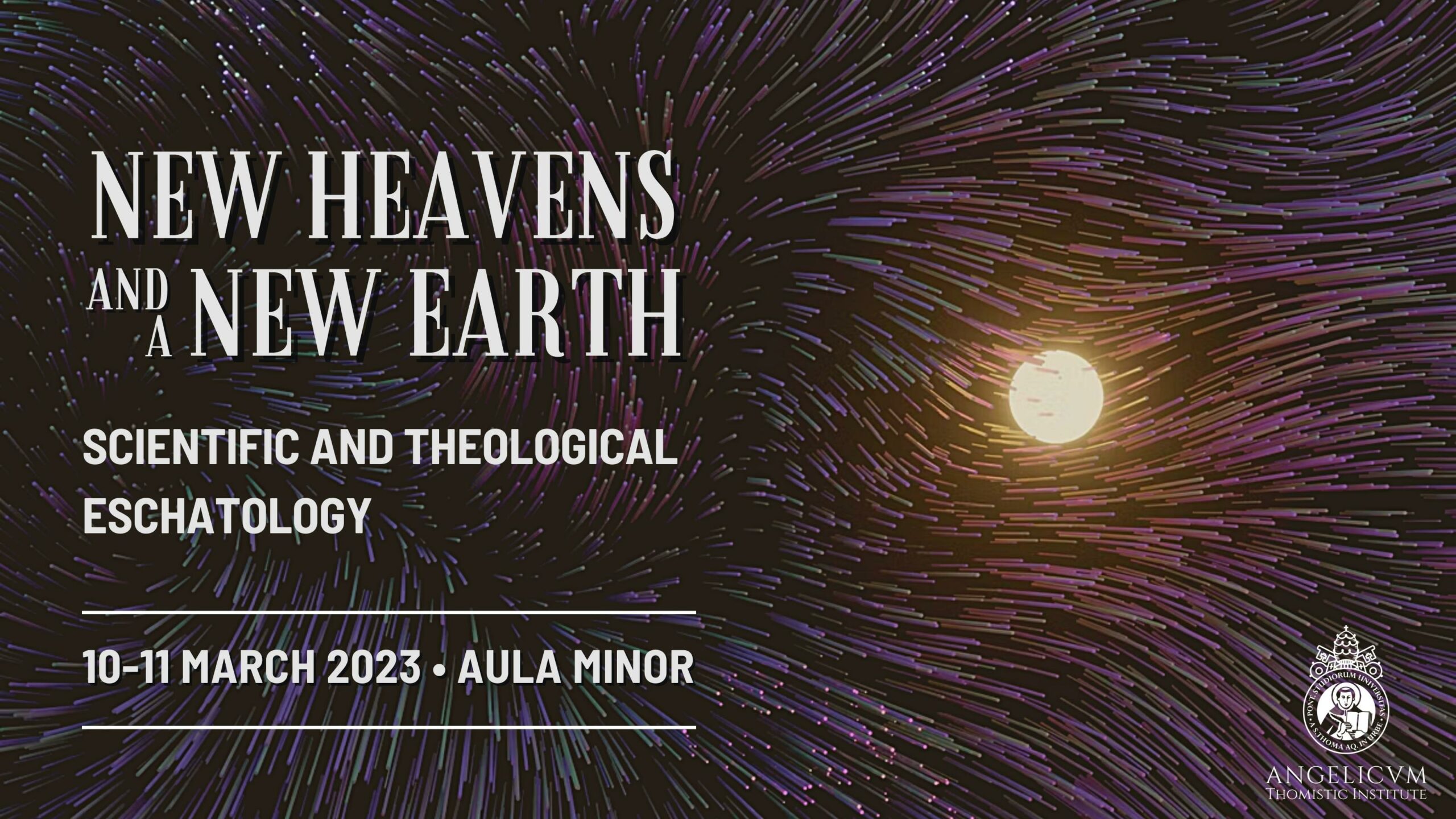
- This event has passed.
New Heavens and a New Earth: Scientific and Theological Eschatology
Mar 10 - Mar 11

New Heavens and a New Earth: Scientific and Theological Eschatology
10-11 March 2023
Aula Minor, Angelicum
Language: English
Download the full conference program here.
Theme of the Conference: Physical Eschatology
Eschatology – theorising about the end of the world – has historically been the purview of theology and philosophy, in the same way that Cosmogony – theorising about the origin of the universe – was thought to be an exclusively speculative study, not an observational one. One of the most profound scientific discoveries of the twentieth century was that the solar system and the universe have histories that have left clear signs and markers that are accessible to observation. The theory of general relativity and further advances in theoretical and observational cosmology opened the door to a scientific history of the universe. Observational and theoretical advancements about the nature of stars revealed the complex stages of stellar development and a history for our solar system and the Earth in particular. Parallel to those profound historical discoveries are scientific predictions about the future of our planetary home, our solar system, and the universe as a whole, each of which coalesces in a discussion of how they will reach their end, a “Scientific Eschatology.”
In this conference, we shall first look back to the first major interaction of astronomy and Catholic theology, by recalling the scientific and theological reception of the theories of Copernicus, as we mark the 550th anniversary of his birth. Then we shall consider the most recent developments in Scientific Eschatology, predictions about the future of our solar system and the universe, and Theological Eschatology, with a particular focus on the doctrine of the resurrection of the Body and the “New Heavens and New Earth”. Drawing on the insights of specialists from Europe and North America in astronomy, theology, philosophy, and history, our hope is to inspire interdisciplinary reflection and dialogue on what, if any, interaction there can and should be between scientific predictions about the future of the universe and theological reflection on the “end times” and what Christ promised will come afterwards.
Schedule
Friday, 10 March
09:00 | Christopher Graney (Vatican Observatory) | A New-Old Heaven and Earth: St. Thomas, Kepler, and the scientific reception of Copernicus
10:00 |Coffee Break
10:30 | Nuno Castel-Branco (The Harvard University Center for Italian Renaissance Studies) | Heliocentrism, A Forbidden Idea? Copernicus, Aristotle, and Early Modern Censorship
11:30 | Coffee Break
12:00 | Jonathan Lunine (Cornell University and Dominican House of Studies) | The future of the Solar System: A scientific view
13:00 | Lunch Break
14:30 | Gabriele Gionti, SJ (Specola Vaticana and INFN) | The Universe as Described by the Standard Model of Cosmology: From the Big-Bang to the End of the Universe
15:30 | Coffee Break
16:00 | Afternoon Break Out Sessions
Saturday, 11 March
12:30 | Dominic Holtz, OP (Pontifical University of St. Thomas Aquinas) | The End of Endless Motion: Thomas Aquinas, Celestial Bodies, and the Renewal of the World
13:30 | Lunch Break
14:30 | Michael Root | (Catholic University of America) | The State of Contemporary Eschatology and Its Relation to Secular Wisdom
15:30 | Coffee Break
16:00 | Paul O’Callaghan (Pontifical University of the Holy Cross) | Doctrine of the Resurrection of the Body and the New Heavens and New Earth
17:00 | Coffee Break
17:30 | Thomas Davenport, OP (Pontifical University of St. Thomas Aquinas) | Immortal Diamonds: Contemporary Science and the Problem of Incorruptibility
Online registration is now closed, to register please go to the ATI registration desk on the day of the conference.


